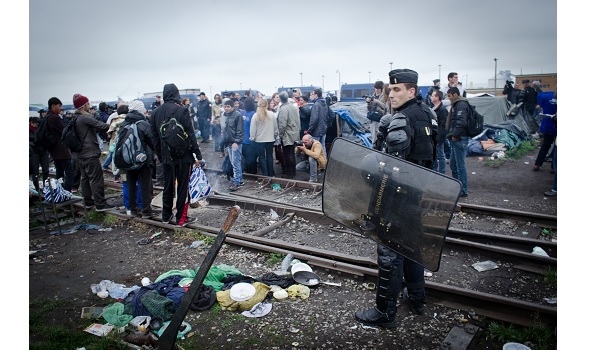Editorial: The 'safe country' delusion
Editorial: The 'safe country' delusion

The government’s reaction to a handful of migrants arriving on the UK’s southern shores over the festive period has revealed, once again, that the UK and EU asylum systems are out of touch with the reality of how and why people are moving.
While we were pleased to hear that the Home Secretary had decided to send rescue boats to the Channel (progress from a few weeks ago), his presumptuous claim that the people crossing may not be “genuine” refugees and suggestion that their asylum applications could be refused to deter others were stark indicators of how far we are as a nation from a fair and compassionate approach to asylum seekers.
If a person’s asylum claim were to be refused purely as a deterrence, that would be illegal. If the Home Secretary’s words were themselves intended to act as a deterrent to those considering the crossing, that is deeply concerning.
The government's silence as 32 refugees were stranded off the coast of Malta over the Christmas and New Year period, denied access to a port of safety, is equally concerning.
At the root of the problem is the EU-wide Dublin Regulation. We’ve called in the past for it to be abolished and replaced with a Europe-wide single asylum application with a minimum standard of reception and integration – and we repeat that call again now.
“Dublin” famously decrees that asylum applications should be processed in the first “safe country” where the person arrived – but that term is widely misunderstood and highly problematic.
Asylum seekers don’t have to claim asylum in the first safe country and it isn’t illegal for them to move through several countries before making an application. But many EU countries have spent years portraying and treating people who do not apply in that first safe country as if they have done something wrong, or even as criminals.
Many people also have powerful reasons for moving on. While “Dublin” theoretically allows for asylum seekers to be reunited with close family members in other EU countries, this rarely happens in practice.
When our Director, Nazek Ramadan, visited Calais in 2015, she met several women and children whose husbands were in the UK and whose hopes of being reunited through the formal “Dublin” route were gradually fading. Failed by the system and growing desperate, they make their own way.
Many others have no plans to come to the UK at all. Like one Sudanese man who also spent time in Calais. Having fled his country where he suffered torture due to his ethnicity, he had applied for asylum in France but – because he was not considered “vulnerable” – he was not entitled to any support.
Sleeping in a tent and surviving on meals provided by NGOs, he waited six months for his first interview. Then he was told to wait another three. Losing hope of any future in France and mentally broken down, he risked his life to get to the UK. How many of us would have chosen differently?
Several recent reports detailing brutality by police against migrants, both at Calais and elsewhere in France, suggest the situation has not improved and may be deteriorating.
France may not be riven by war or ruled by armed militias, but that should not be the only requirement for a country to be considered “safe”.
Without a guarantee of shelter, food or family life, and facing the threat of violence, which of us would not consider seeking a better life elsewhere?
“Dublin” must be abolished to make way for a flexible, humane asylum system that allows families to be quickly and permanently reunited and turns Europe into a genuinely safe continent for everyone.
In the meantime, we urge the UK government to rescue all migrants stranded at sea and to stop politicising their life or death struggle for a better life.
TOP IMAGE: Calais, 28 May 2014 (Squat Le Monde/Flickr)


